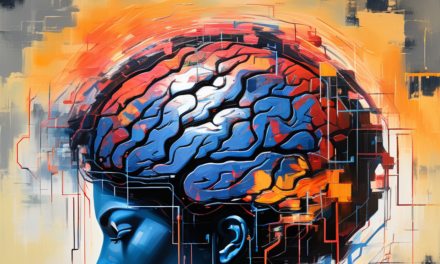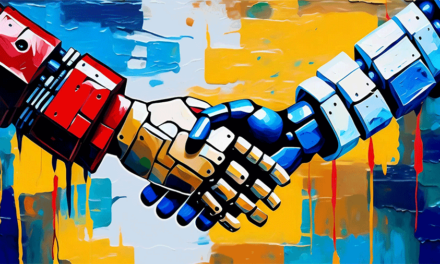Amid ongoing reports of growing employee-employer tensions, Natalie Cramp, CEO of data company Profusion, discusses how AI can help HR teams to improve engagement levels.
We’re at yet another pivotal moment for HR leaders. Three years on from the pandemic-induced remote working shift, employees are now accustomed to working flexibly and, in some ways, to the beat of their own drum. Many are no longer happy to settle for standard. More than ever, they want flexibility and autonomy, recognition and a decent work-life balance. However, many employers are now committing to getting their workers back into the office.
Unfortunately though, and understandably too given the pace of this change, many employers have struggled to adapt to the changing expectations of their employees. According to one recent report1, only 13 percent of workers in the UK feel that their employer’s benefits provision closely aligns with their needs – an issue that will, no doubt, become more compacted as the ‘great return’ takes hold. Also, only 10% of workers say they feel engaged at work – one of the lowest recorded in Europe. Furthermore, even though HR teams are usually at the helm of bridging the employer-employee gap, our research shows that only 24% of employees are fully comfortable talking to their HR department about workplace issues.
Clearly then, if businesses want their employees to be happy to return to the office, there is a job to do in getting employees back on side and creating a more nurturing and connected workplace.
The good news is there is a solution. The latest advances in AI and data offer a unique opportunity to transform how organisations communicate with employees, recognise and reward good work and support progression. In fact, done well I believe that the increased use of AI could, in fact, make HR more human. However, getting it right requires a balanced perspective which pays equal weighting to both the technology itself and human intelligence.
So, what should HR professionals be on the lookout for?
Pragmatic AI implementation
To understand how AI can benefit HR departments, let’s consider the application of AI technology in a number of key organisational touch points.
A great example can be found when it comes to a promotion or personal development. While it’s not to say that an algorithm can ever offer a complete substitute for experience and intuition, this should be a combined process of person and data, data’s capability goes far beyond measuring simple KPIs or productivity stats – it can take into account a huge range of sources from the structured such as performance reviews to the unstructured – ideas generated for projects. In this way, some advocates of data science in HR argue that it is inherently fairer. Rather than leaving decisions up to the personal whims or potential human error of an HR rep or line manager, it makes it much easier to stay on top of performance targets from a broader perspective and reward staff on proven progress in a timely manner.
This argument is particularly powerful when it comes to finding ways to support often underrepresented groups in an organisation. In fact, our research amongst UK workers shows almost three quarters (72%) believe that applying data to HR decisions could be better than the practices currently used. This number rises to 80% for BAME employees and 82% for disabled employees.
Moreso, it can also go a long way in helping managers identify and address worrying trends such as regular overworking or underworking in order to address any issues before they escalate. This becomes especially important in helping HR support more people-focused remote working.
Human Intervention is Key
However, that is not to say that AI should ever try to be human. Although it has the capacity to make decision making fairer, more transparent and tackle systemic problems such as discrimination, it cannot work properly if it is left to its own devices. In fact, thinking about human or data based decision making in HR as a binary choice can lead to you getting the worst of both worlds.
Though it was only a trial and didn’t go live, Amazon saw how an unchecked recruitment algorithm designed to eliminate the gender gap actually ended up perpetuating it. Amazon’s findings could have been avoided if there was closer monitoring and scrutiny of how its algorithm actually impacted the wider business in practice. Any algorithm we use, we have to review any inherent bias it may have e.g. not having been trained on sufficient data from certain cohorts, and address accordingly.
In this way, the answer is to keep the human in HR. Data science is a powerful enhancement but it is not a replacement.
Communication and Transparency
It’s also important to remember that data driven HR is only fairer if it is a transparent process that everyone understands. This may require company-wide education on data to demystify the whole process. Employees should always be able to see a fair value exchange for the use of their data – something that is genuinely making their working life better. The benefit of transparency is that it will empower people to challenge decisions they feel are unfair – adding further safety and accountability to the system.
Take, for example, the advent of employee surveillance technology. Some HR leaders might think it would put employees off, viewing it as a Big-Brotherish step too far. But the reality is quite the opposite. Our study reveals that 61% of employees are comfortable with data being used to monitor them – so long as they can see it – believing it to enable fairer decision making. In this way, it’s about acting responsibly, transparently and taking your employees on the journey with you.
A Secret Weapon
It is easy to see why AI adoption may be met with a certain degree of scepticism, especially amongst constant and inaccurate scaremongering that our robotic overlords may take over. However, the reality is that there are some huge business gains to be had by adopting AI, particularly in the HR field where it can help transform processes, drive positive impact and, rather paradoxically, enhance the human aspect of the evolving HR field.
References
Natalie, with over a decade's experience, currently leads Profusion, a data consultancy. Recognised among the top data professionals, she plays significant roles in various data community initiatives. Prior to Profusion, she expanded a start-up's revenue from £6M to £30M in 18 months and led impactful marketing campaigns for the Mayor of London. Having contributed to the London 2012 Olympic Games and starting at Deloitte, Natalie fervently believes in data as a catalyst for societal and business advancement.







